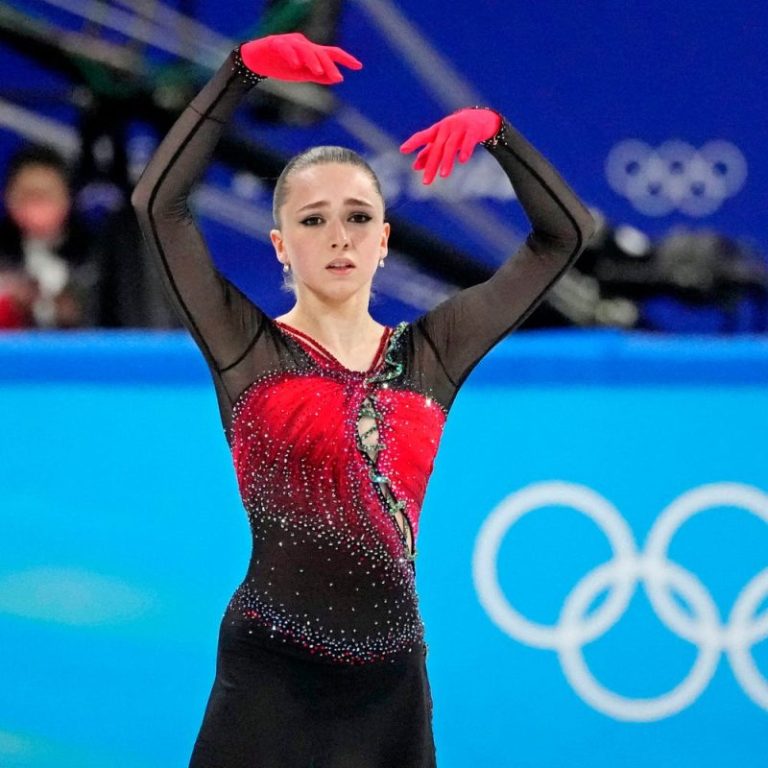The World Anti-Doping Agency announced Tuesday morning, as expected, that it will appeal the Russian Anti-Doping Agency’s “wrong’ decision on figure skater Kamila Valieva to the Court of Arbitration for Sport, seeking a four-year ban for Valieva and disqualification of all her results since late December 2021, including those from the 2022 Beijing Winter Olympics.
U.S. Anti-Doping Agency CEO Travis Tygart immediately applauded the decision, which could eventually affect the order of the medals from the Beijing Olympic team figure skating event. He also called for an expedited and public CAS hearing.
“It had to be done in order to restore some confidence in the global anti-doping system and we are very thankful,” Tygart wrote in a text message to USA TODAY Sports. “Now, let’s hope the hearing is expedited and open to the public so that the athletes, whose dreams are hanging in the balance, can believe in the final outcome, whatever it may be, and that some justice can be salvaged soon.”
WADA said in its announcement that it “will continue to push for this matter to proceed without further undue delay.”
In January, a RUSADA disciplinary tribunal found that while the then-15-year-old Valieva committed an anti-doping rule violation, she bore “no fault or negligence” for it. RUSADA imposed no sanction except for the disqualification of her results on the date the sample was collected, which was Dec. 25, 2021, at the Russian national championships.
That decision hardly was a surprise and was completely consistent with the way RUSADA has handled the controversial and excruciatingly delayed case. RUSADA itself was suspended from 2015-18 for helping Russian athletes cheat.
It has now been more than a year since Russia won the gold medal, the United States won the silver medal and Japan won the bronze in the team figure skating competition in Beijing. The following day, those results were thrown into disarray when Valieva, the star of the Russian team, was found to have tested positive for the banned substance trimetazidine at the December Russian championships, forcing the unprecedented cancellation of the event’s medal ceremony.
There could be a re-ordering of the medals if Valieva were to be disqualified by CAS, with the United States moving up to take the gold, followed by Japan and Canada, the fourth-place finishers in the competition.
“The entire global system has failed all of the athletes including Valieva,” Tygart told USA TODAY Sports earlier this month. “Obviously, first and foremost the Russians are at fault for allowing this to happen but the whole system also is accountable for allowing this Russian fiasco to turn into a mockery of justice that has robbed athletes of their performances, hard work and sacrifice.”
In its announcement, WADA said the finding by the RUSADA disciplinary tribunal was “wrong under the terms of the World Anti-Doping Code in this case. … Within the appeal, WADA is seeking a four-year period of ineligibility and disqualification of all the athlete’s results from the date of the sample collection on 25 December 2021.”
If CAS rules in favor of Valieva, that would most likely be the end of the case and the medals would eventually be awarded in the current order: Russia, USA and Japan. There has been talk of awarding those medals at the 2024 Paris Summer Olympics, although Russia’s invasion of Ukraine and now-year-long war certainly would complicate any plans to highlight such a high-profile Russian gold medal.
If CAS rules against Valieva, then the International Skating Union, the worldwide federation for figure skating, and the International Olympic Committee would begin their work.
As IOC spokesman Mark Adams told USA TODAY Sports earlier this month, “Only the finalization of the case will enable the International Skating Union to establish the definitive results of the figure skating team competition at these Games and the IOC to decide on the medal allocation.”
Another CAS panel that convened at the Beijing Olympics allowed Valieva to continue to compete in the women’s competition at the Games, citing the fact that Valieva was a “protected person” (a minor in this case) under WADA rules. That CAS ruling did not address the merits of the doping case and, in fact, allowed her to compete in part because of the possibility that she might not be banned at a later date.
Skating under the weight of a full-blown Olympic scandal, Valieva, the gold-medal favorite, stumbled to a fourth-place finish.

